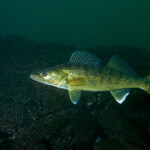NOAA to end SIMP "informed consent" period in April
The date when the United States will begin enforcing full compliance with a program designed to prevent illegally fished and counterfeit products has been set as 7 April, according to a statement from the National Oceanic and Atmospheric Administration.
The Seafood Import Monitoring Program officially took effect on 1 January, nearly 13 months after officials revealed its regulations that required importers to keep records on selected products. However, officials opted to begin the program with an “informed compliance” phase, choosing to allow shipments with missing or misconfigured data.
“NOAA Fisheries has observed an encouraging and steadily increasing rate of compliance with SIMP filings,” the agency said in a statement.
SIMP requires importers to maintain records for Atlantic cod, blue crab, dolphinfish, grouper, king crab, Pacific cod, red snapper, sea cucumber, sharks, swordfish, and tunas detailing how they were caught or harvested and tracking the products until they reach the U.S.
In January 2017, the National Fisheries Institute and a group of seafood companies sued the government, claiming SIMP violated federal law. However, a federal judge in August ruled against the plaintiffs, saying Congress gave the authority to agencies to issue regulations.
On Tuesday, a spokesman for the NFI said that programs like SIMP experience “growing pains” and that the industry will look for opportunities to help NOAA handle such issues as the April deadline draws closer.
“NFI members will work to ensure they are prepared for full implementation of SIMP,” said Gavin Gibbons, the NFI’s vice president of communications.
The institute, however, still has concerns about how SIMP will handle shrimp. Originally, shrimp was included in the program, but officials held off on mandating importers begin compliance in January as similar procedures aren’t in place for domestic producers.
Since that decision, though, business organizations and lawmakers have pushed to start SIMP regulations for shrimp. One proposal currently in the U.S. Senate would give shrimp importers just 30 days to become compliant from the time the FY2018 Commerce Department appropriations bill takes effect.
A short implementation could be problematic as government data shows as much as 90 percent of the shrimp Americans consume is imported. Gibbons said the institute wants to see shrimp importers get the same amount of time to prepare for the program.
The 30-day proposal “is neither reasonable nor responsible,” Gibbons said. “The other 15 species covered by SIMP had a year or more to prepare for the program’s implementation. Rushing the shrimp deadline has the potential to be a disruptive force and does not benefit regulators.”






Share